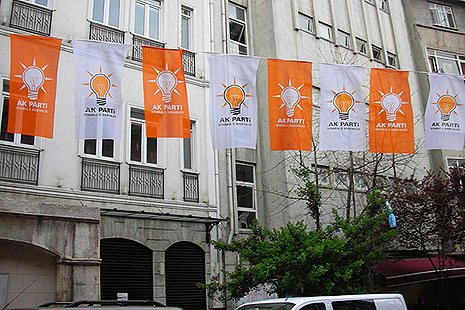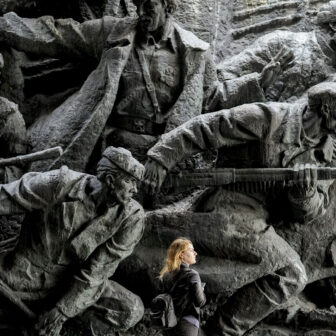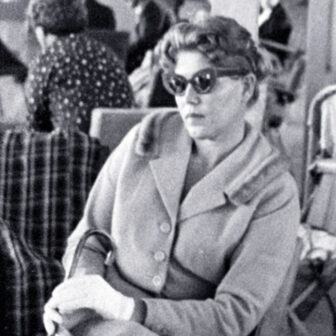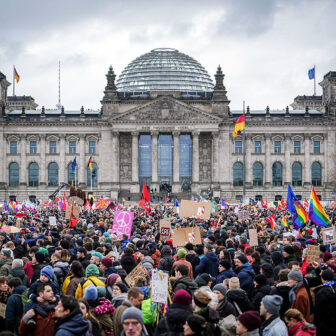TURKEY’s local elections are over. International markets and ordinary Turks have taken a deep breath, hoping that the tense atmosphere of the pre-election period will dissipate and the government will return to business as usual. But there is little reason to expect that to happen anytime soon. The political fault lines seem too deep, the conflicts in this country of seventy-five million too divisive and the stains on the government’s reputation too many to ignore. Polarised politics, creeping curtailment of human rights, widespread corruption and a looming economic slowdown will create the conditions under which the country will return to the ballot box twice more: in August, for the country’s first direct presidential elections, and in 2015 to elect a new parliament.
But is this the whole story of the Turkey’s predicament? Can more than a decade of change be summed up simply as boom and impending bust and good Islamic conservatives turning into bad Islamists? The politics of a country as important as this one for the Western alliance, and as central to overlapping regions that include Southeast Europe, the Black Sea, the Caucasus – a swathe extending from the Mediterranean to the Middle East – deserves more subtle questions.
In the search for answers, the local elections of 30 March are a good starting point. As the first opportunity for voters to express their views about the governing Justice and Development Party, or AKP, after the popular unrest of Gezi Park in May and June last year, the local elections were expected to initiate the gradual demise of prime minister Recep Tayyip Erdoğan. At least this was what the opposition parties, Turkish liberals and leaders of world opinion like the Economist and the Guardian expected. They had good reason to do so: the past few years of AKP rule have seen an increasing centralisation of power in the hands of the prime minister and a tightening of the conservative social and family policies that many find suffocating. The image of Erdoğan and his inner circle has also been tainted by leaks and allegations of corruption and nepotism, transmitted virally in the electronic media. And finally, when the government tried to close down social media sites like Twitter and YouTube to stop further leaks, the opposition Republican People’s Party, or CHP, and many other observers were convinced that the party would lose the local elections spectacularly.
The elections were fought in an atmosphere of leaks, attacks by former allies of the prime minister – including the Hizmet movement, a religious and economic network linked to the charismatic Islamic preacher Fethullah Gülen – and counterattacks by the government. Erdoğan turned what were supposed to be local elections about local issues into a referendum about the future of Turkey and his own personal destiny. The opposition parties, the CHP and the right-wing Nationalist Movement Party, or MHP, led a reactive campaign, responding to Erdoğan’s rhetoric rather than presenting their policy alternatives.
The AKP appeared to be engaging in a desperate battle for power, determined to hold on to its local mandates. On election day, news of irregularities in the counting of ballots and the reporting of results emerged, as many had expected. Several formal objections by opposition party candidates remain unresolved, making this the first disputed election since 1946, the year of the first multi-party polls in the history of the Turkish Republic. In Ankara, where the CHP candidate came very close to defeating the incumbent AKP mayor, and in some Kurdish cities on the Syrian border, the evidence of election fraud has been considerable. Local AKP candidates in Ankara probably feared the symbolism of defeat for the ruling party in the capital, and in the cities on the Syrian border, the government might have been wary of pro-Kurdish mayors unsympathetic to Turkey’s operations in Syria.
Despite the evidence of localised irregularities, however, it seems clear that the AKP and Erdoğan managed to win the elections despite the allegations of corruption, despite increasing suspicion in Europe and the United States about Turkey’s Western credentials, and despite Erdoğan’s increasingly sectarian and aggressive political style. Was this, as some observers have suggested, a populace voting against its best interests and in favour of the populism and charisma of Erdoğan? It is easy to dismiss the victory, but also easy to overstate it. With around 45 per cent of the national vote, this was not a historic landslide for the AKP.
Was this the reaction of a people ignorant of corruption claims and tolerant of authoritarian tendencies? Most people who voted for the AKP did so because they believe that their lives have improved considerably over the last decade thanks to massive state investment in health and educational services, transport infrastructure and public housing projects. For those who managed to climb up the social ladder under the AKP – a significant part of the party’s voter base – no other option would have been safe. Neither the secular CHP nor the right-wing MHP have been able to present thought-through alternatives for economic development or redistributive policies. Many AKP supporters voted for the prime minister’s party because they hope their relative economic advancement will continue and their circumstances will be better in ten years.
YET THE allegations of corruption and cronyism are now out in the open. The government’s attempts to block access to Twitter and YouTube have backfired: the Turkish Constitutional Court has ordered that Twitter be unblocked and legal initiatives to establish control over the internet be curtailed. Internationally, the ban has been intensely damaging to Turkey’s reputation as a country one can do business with. Every step Erdoğan takes towards more authoritarian control of the media, and of the administration, the judiciary and independent institutions, will inevitably lead to a further loss of trust in the country’s commitment to rule of law.
This is indeed a vicious circle. The government may feel compelled to continue intervening in due process to suppress leaks about corruption, further antagonising investors and the community. Without foreign direct investment, Turkey’s economy will almost certainly falter. A high foreign account deficit and equally high levels of indebtedness are serious risk factors. All this would lead to the gradual collapse of infrastructure projects, rent-based real estate development and quality social services, which are at the root of the AKP’s electoral success.
If this was not sufficient to deepen the risks in an already vulnerable situation, we can add the presidential elections in August and the parliamentary elections scheduled for 2015 as further critical moments. In August, people will for the first time vote directly for the president, who will, however, have limited executive powers and need to be impartial. Constitutional issues remain unresolved, compounded by the lack of clarity about who will run for the job. Erdoğan would like the presidency, to crown his political career, even though he would prefer a semi-presidential power arrangement, which he failed to pass through parliament. The incumbent, Abdullah Gül, more liberal and respected abroad than Erdoğan and one of the founding members of the government party, has signalled that his voice should be taken into account in the debate over the future of the presidency, a hint that the prime minister seems to have ignored. This discord between Gül and Erdoğan make a “Russian solution,” with the prime minister and the president swapping roles, unlikely. Yet, if Gül is marginalised through Erdoğan’s machinations, the AKP will have lost yet one more credible politician of integrity.
In the build-up to these two elections, the many challenges include the unresolved constitutional issues in relation to the elected president, the political options for prime minister Erdoğan, the future of Turkey’s democratic institutions and its rule of law, and the unresolved issue of Kurdish rights. The next year or so risks being a period of political polarisation, uncertainty and crisis, with negative effects on all sectors of society and the economy. Unless, of course, the AKP government finds a way to address the pending constitutional issues in consultation with the opposition parties, returns to a language of moderation rather than polarisation and recommits to the pro-European democratic reform agenda of the first years of its rule. Alternatively, the opposition parties could form a new block that reaches out to the 55 per cent who didn’t vote for the prime minister’s party last month and convince them that it is fit to lead the country.
Both options appear unlikely but not impossible. If they both fail, Turkey may be in for a protracted period of mutually reinforcing economic and political crises, adding yet another source of uncertainty for a region, from Greece and Ukraine to Syria and Iraq, moving towards turmoil. •




